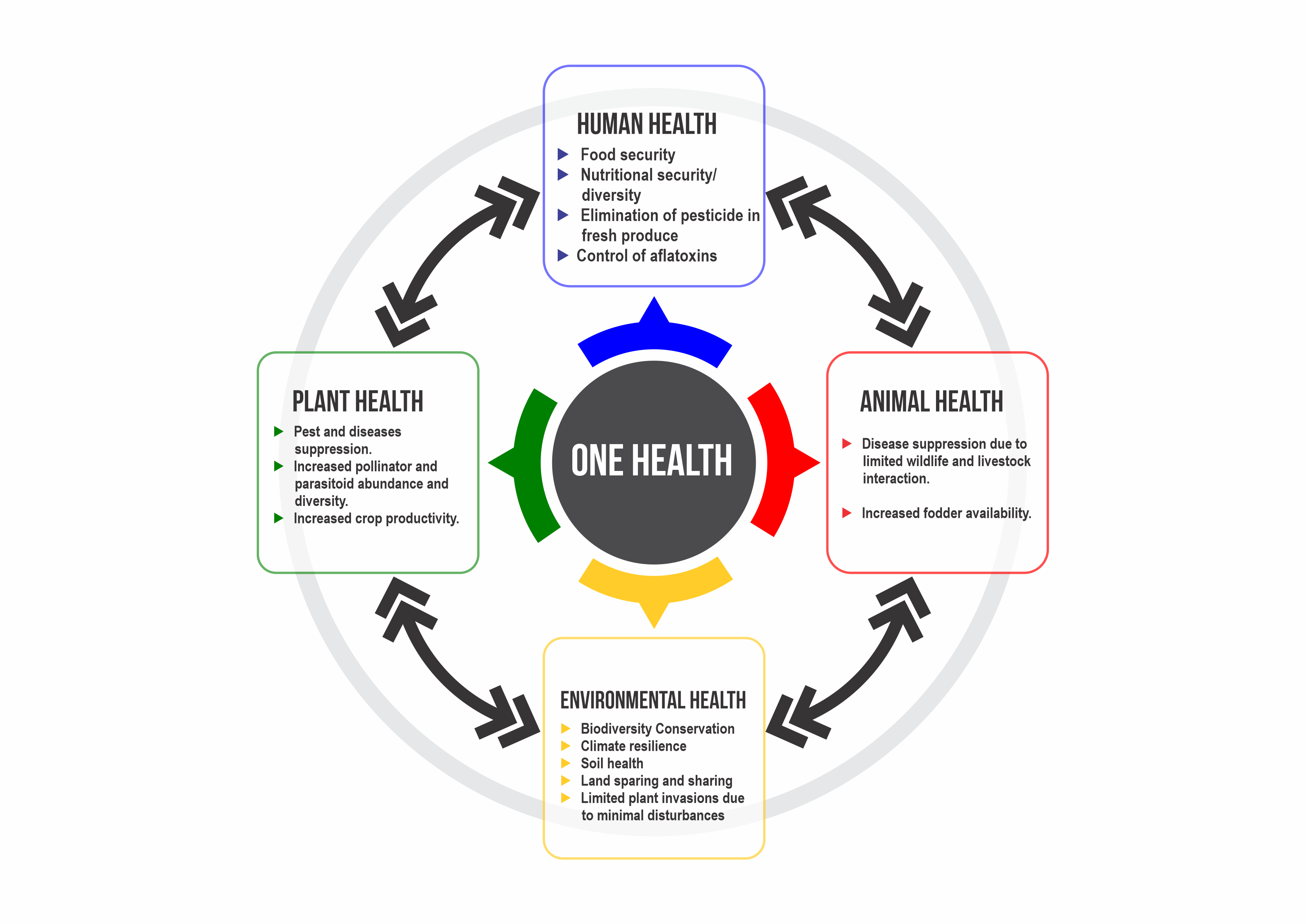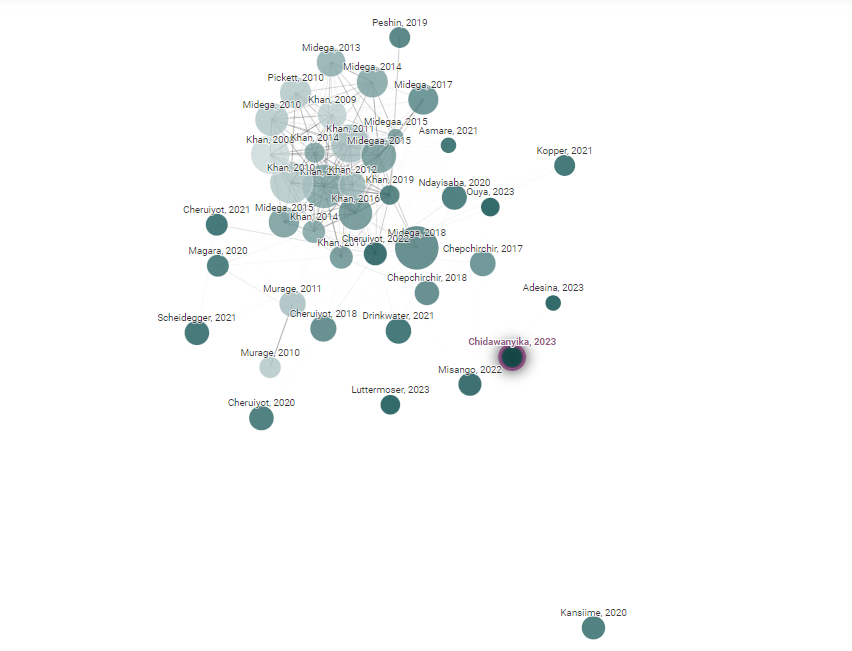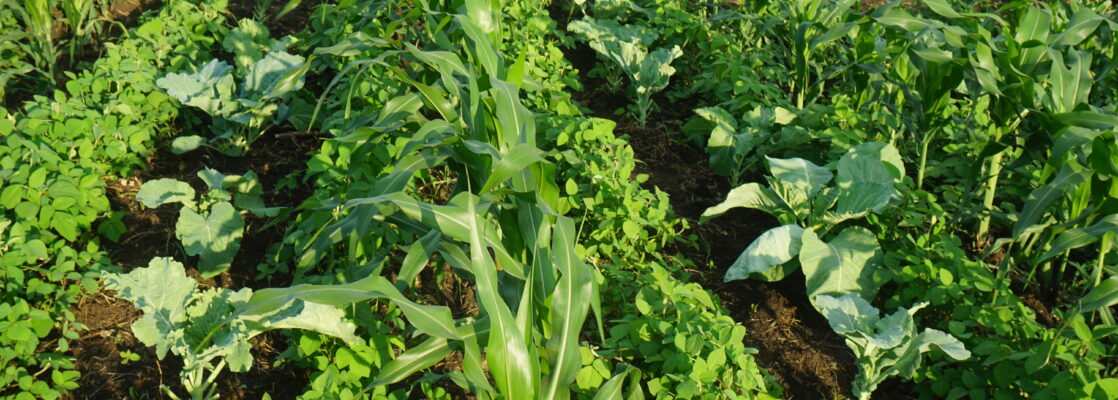
The adoption of sustainable agriculture practices has become critical in the face of rising global difficulties related to achieving food security, combating malnutrition, and mitigating environmental degradation. Within this context, the ‘One Health’ (OH) paradigm emerges as a comprehensive approach encompassing human, plant, animal, and environmental health for planetary well-being. Recognizing the complex interdependencies inherent in global health concerns, this approach emphasizes the importance of integrated and synergistic interventions. This is especially true in agriculture, where an overreliance on synthetic inputs to meet the rising demands of an expanding human population has resulted in serious environmental degradation and devastating loss of biodiversity and their valuable ecosystem services. In response, the development and implementation of agroecological farming systems have gained prominence.
Together with partners, the International Centre of Insect Physiology and Ecology (icipe), has further intensified the maize push-pull technology by integrating edible legumes and vegetables to form the now called vegetable integrated push-pull technology (VIPP). This is especially important for improving food safety (by reducing pesticide application in fresh produce), nutritional diversity and incomes at household level. At broader scales encompassing both the farms and the surrounding agricultural landscapes together with crop-livestock integration, the VIPP aligns with several One Health provisions as reported in the recent paper from icipe led by Dr Frank Chidawanyika.
Authors: Frank Chidawanyika, Beatrice Muriithi, Saliou Niassy, Fredrick O. Ouya, Jimmy O. Pittchar, Menale Kassie & Zeyaur R. Khan
Contact address: fchidawanyika@icipe.org
Institution: International Centre of Insect Physiology and Ecology (ICIPE); www.icipe.org
Twitter name of the institution: @icipe
Twitter link: https://twitter.com/icipe
Available downloads



